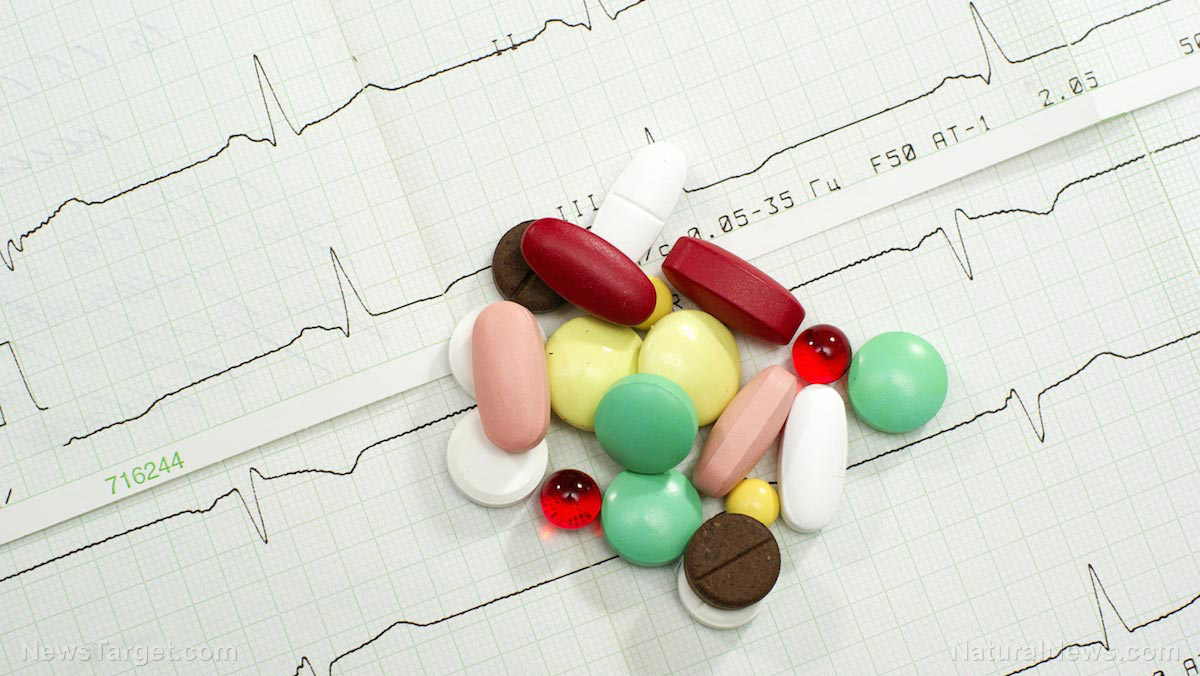Collaborative study concludes that antibiotics and antacids increase risk of childhood obesity
04/22/2019 / By Zoey Sky

The obesity epidemic affects both young and old. According to a study, there could even be a connection between the use of antibiotics, antacids and obesity in children.
The study, which was published in the British Society of Gastroenterology‘s (BSG) medical journal Gut, was a collaborative effort between researchers from the Uniformed Services University of Health Sciences (USU) and Walter Reed National Military Medical Center.
Antibiotics, antacids, and children’s health
The results of the study showed that toddlers given antibiotics and antacids in the first two years of their life had a higher risk of developing obesity.
The researchers first looked at the Military Health System records of 333,353 children who were born between October 2006 and September 2013. The data indicated that 72.4 percent of the children were prescribed an antibiotic while 11.8 percent were given antacids before they turned two years old.
The researchers noted that there was a link between the prescription of antibiotics and those who had childhood obesity. Additionally, there was a connection between obesity risk in children and the use of antacids, like those prescribed to control acid reflux.
Antacids are over-the-counter (OTC) drugs used to neutralize stomach acid. They can be used to treat symptoms of excess stomach acid such as acid reflux.
Acid reflux may include a bitter taste in the mouth, pain when lying down, persistent dry cough, regurgitation, and trouble swallowing.
Antacids may cause side effects like constipation even when used according to instructions. Additionally, antacids can increase the risk of developing sensitivities to certain foods. When misused, antacids may cause side effects such as kidney stones, changes in mental status, nausea, and vomiting.
Air Force Lt. Col. Dr. Cade Nylund, the lead researcher and an associate professor of pediatrics at USU, said that these prescriptions affect the human gut microbiome, which can then cause childhood obesity.
Nylund explained that while antibiotics directly kill portions of the healthy gut microbiome, antacids can change the gut microbiome by decreasing acidity in the gut. Both medications reduce bacterial diversity in the gut, and certain changes in bacteria may affect metabolism and how humans digest nutrients.
Nylund was surprised to find that these drugs could negatively affect a child’s overall health, especially since antibiotics are often used to address bacterial infections. However, many illnesses in children include viruses that cause the common cold. These viral infections should never be treated with antibiotics.
On the other hand, most cases of gastroesophageal reflux in early infancy is normal. The condition often goes away on its own and antacid medications don’t always address symptoms like infant fussiness.
Medication and the gut microbiome
Dr. Gail Cresci, a researcher from the department of pediatric gastroenterology at Cleveland Clinic Children’s, also agrees that antibiotics and antacids could affect the gut microbiome – the community of helpful microorganisms that live in the gut.
Antacids eliminate the body’s first line of defense against ingested pathogens by reducing gastric acidity, the very thing that can destroy many of these pathogens. Cresci added that obesity, which is usually linked to “low grade” inflammation, can allow pathogens to reach the distal intestine. This can eventually change microbial diversity.
Antibiotics target various gut microbes, and this can decrease gut bacterial numbers and diversity. This may also decrease intestinal immunity and a person’s ability to fight infections and regulate inflammation. (Related: Toddlers given antibiotics have a much higher chance of becoming obese.)
How to prevent childhood obesity
Experts acknowledge that there are certain limits to this observational study. For example, it doesn’t consider other environmental factors in the children’s lives or their family health histories which could also increase the risk of obesity.
To prevent obesity in young children, Cresci advises parents to monitor other crucial factors like diet and exercise. These two factors can significantly lower a child’s risk of becoming obese as they age.
By following a nutritious diet full of fruits and antioxidant-rich vegetables, people can maintain gut health. These foods also maintain the gut microbiota’s abundance and diversity and support immune function. Foods rich in antioxidants also have anti-inflammatory properties.
If you need to give your children antibiotics, give them probiotics (e.g., live bacteria, or yeasts such as yogurt) to keep their gut microbiome healthy. Consult a healthcare professional before giving your children antibiotics or antacids.
To prevent gut dysbiosis (microbial imbalance), take probiotics at least two weeks after taking antibiotics.
Feed your children nutritious foods like antioxidant-rich fruits and vegetables to maintain gut health and only give them antibiotics and antacids when it’s absolutely necessary to lower their risk of becoming obese as they age.
Sources include:
Tagged Under: #nutrition, acid reflux, antacids, Antibiotics, Big Pharma, childhood obesity, children's health, diet, drugs, gut health, gut microbiome, medication, obesity, obesity risk, Prescription drugs, probiotics, research, yogurt



















